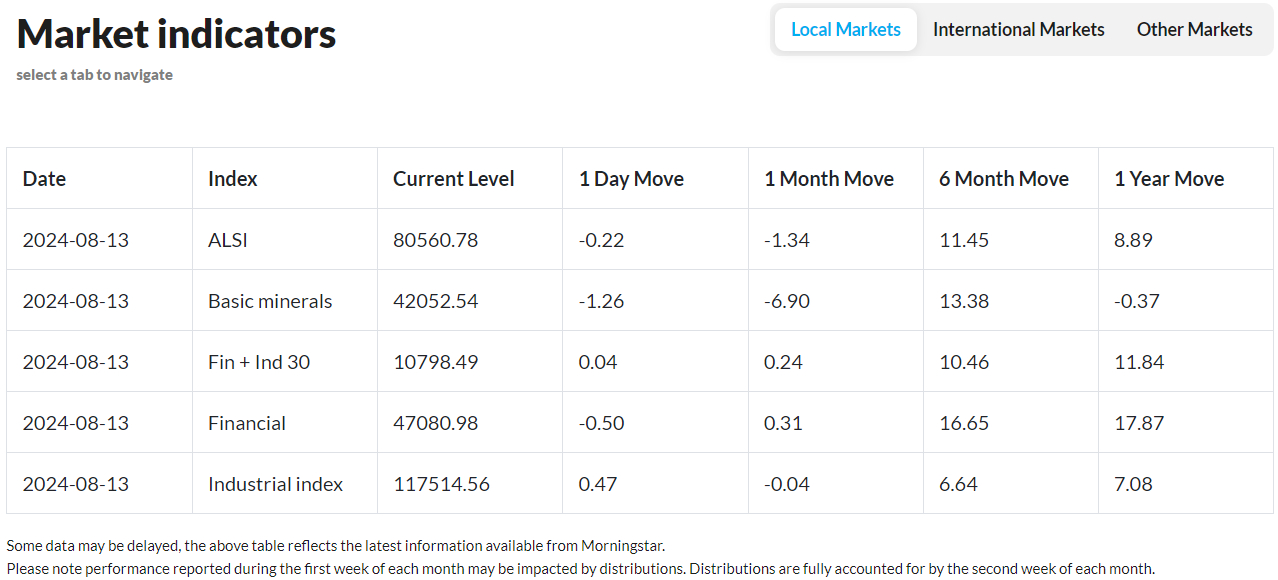S& P 500 hits all time highs U.S.-Japan trade deal optimism
After a turbulent week, Wall Street struggled to sustain its momentum on Monday as investors braced for a busy week of key economic releases. The Nasdaq rose 0.20%, the Dow Jones fell by 140 points, and the S&P 500 remained unchanged. Key indicators to be released this week, including the Consumer Price Index, Producer Price Index, retail sales, and industrial production, are expected to offer insights into the US economy and ongoing inflation challenges.
As investors assessed the impact of economic concerns in Europe on corporate guidance, European stocks flatlined on Monday, just enough to hold the recovery from the selloff that peaked last week. The STOXX 50 and the STOXX 600 closed flat at 4 669 and 499, respectively. Traders also refrained from taking considerable risks ahead of the key US CPI release this week. On the earnings front, Trading Economics reported that: “Hannover Re soared about 4% after the insurer reported higher revenue and earnings and confirmed its guidance. Meanwhile, Munich Re (0.80%), ASML Holding (AS:ASML) (0.70%), and Repsol (BME:REP) (0.70%) were the top performers. In contrast, Kering (EPA:PRTP) (-1.40%), AXA (BIT:AXA) (-10%) and Essilor (EPA:ESLX) (-0.90%) fell the most.”
As ongoing concerns about China's economy and policy uncertainty continued to dampen investor sentiment, the Shanghai Composite dropped 0.14% to 2 858 and the Shenzhen Component slid 0.24% to 8 373, the lowest in six months for both indices. Investors are also anticipating a myriad of Chinese economic data, including retail sales, industrial production, and unemployment figures. Furthermore, this week will see the release of financial reports from several Chinese tech giants including Tencent Holdings (HK:0700), Alibaba (NYSE:BABA), and Foxconn Industrial (SS:601138).
The local bourse lost 0.22% to close at 80 561 on Monday, ahead of significant economic data from major economies, that would provide hints about the global outlook. Investors are seeking clarity on the US economy's health following recent concerns over a job market slowdown, which has caused market volatility. The rand strengthened for the fourth consecutive session, reaching an intraday peak of R18.16 against the dollar on Monday afternoon. However, analysts warned that the local currency remains susceptible to volatility, alongside emerging markets assets and equities in general, which will be influenced by the upcoming economic data releases in the US. Trading Economics reported that the rand had strengthened 0.49% to R18.22/$, 0.39% to R19.91/€ and 0.27% to R23.27/£ at 19h00.
Oil prices rose by over 3% on Monday, marking the fifth straight session of gains amid concerns that escalating tensions in the Middle East could further strain global crude oil supplies. Brent crude futures closed higher at $82.30 per barrel, up by $2.64, or 3.30%. The US Defence Department announced plans to deploy a guided missile submarine to the Middle East, preparing for potential attacks on Israel by Iran and its allies. Meanwhile, Iran and Hezbollah have vowed retaliation for the assassinations of their leaders, potentially escalating the Middle Eastern conflict and driving up global crude prices. Such an attack could prompt the US to impose embargoes on Iranian crude, potentially cutting 1.5 million barrels per day from global supply, Business Day reported. In other commodity markets, gold gained 1.38% to $2 464.3/oz and platinum 1.78% to $939.63/oz at the close of local business.

Which stock should you buy in your very next trade?
AI computing powers are changing the stock market. Investing.com's ProPicks AI includes 6 winning stock portfolios chosen by our advanced AI. In 2024 alone, ProPicks AI identified 2 stocks that surged over 150%, 4 additional stocks that leaped over 30%, and 3 more that climbed over 25%. Which stock will be the next to soar?
Unlock ProPicks AI